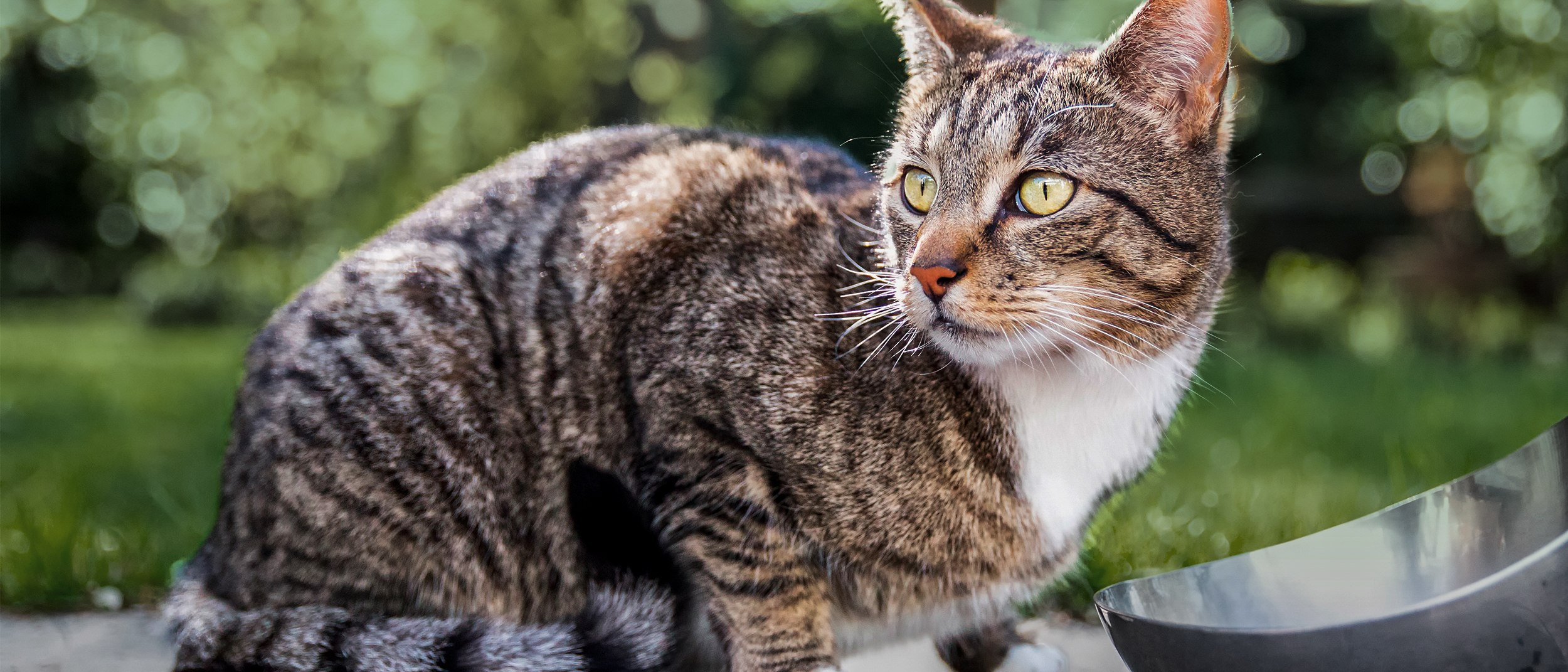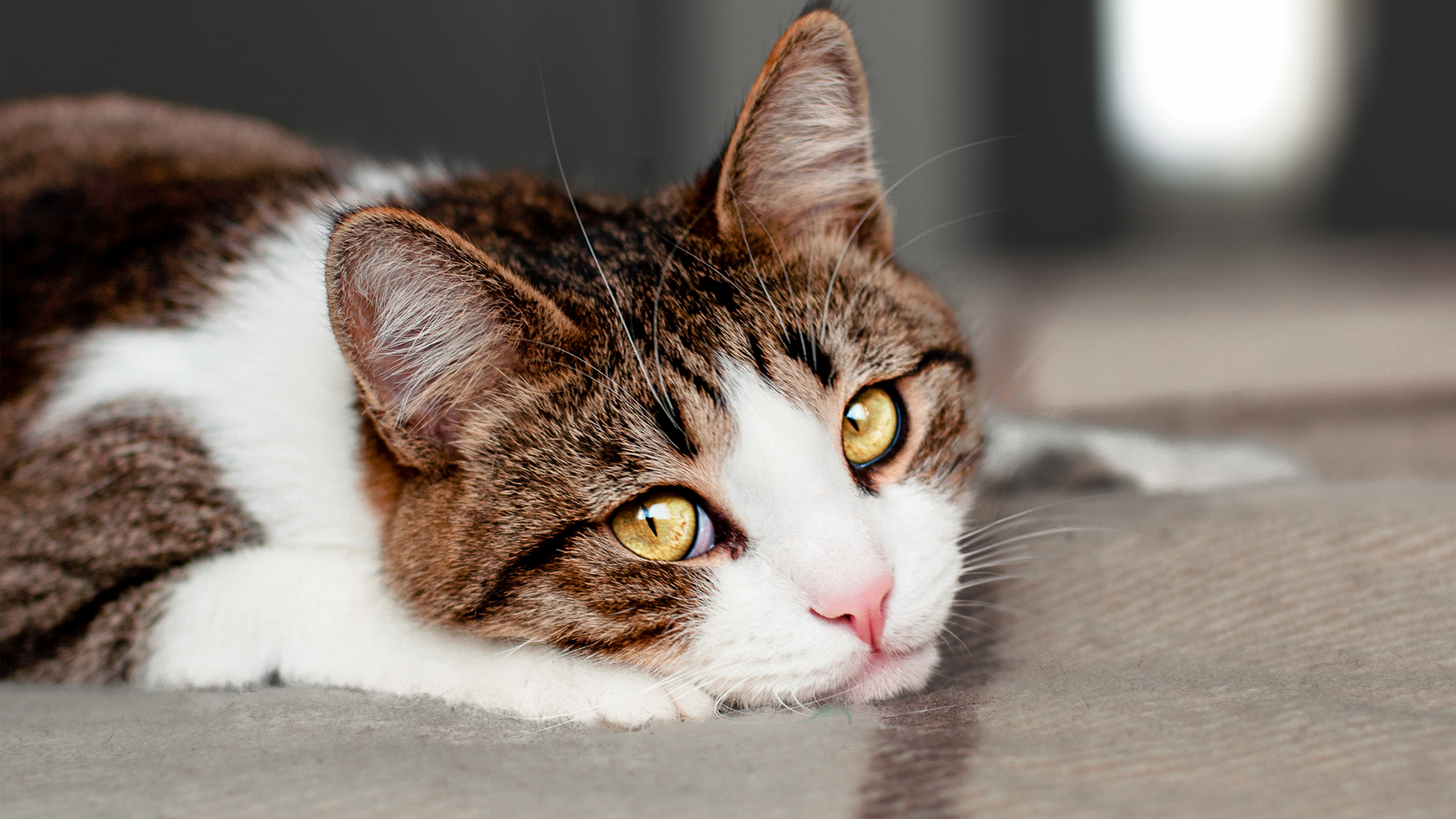Common cat digestive problems
Article

A cat’s digestive system is delicately balanced, with the right levels of bacteria to keep it functioning well. Changes to diet, excessive grooming or broader, systemic illnesses can all disturb this balance and cause common – and treatable – digestive problems.
What are the symptoms of digestive problems in cats?
There are several symptoms to look out for if you believe your cat might have a digestive problem:
- Regurgitation or vomiting including hairballs
- Bad breath
- Diarrhoea or constipation
- Reluctance to eat or struggles to eat
- Weight loss or a painful abdomen
If you spot any of these symptoms in your cat, it’s important to visit your vet as soon as possible so they’ll be able to identify the cause and potential treatment.
Parasites and your cat’s digestion
Parasitic infections are common digestive problems cats suffer from. These microscopic parasites can cause severe diarrhoea, as well as abdominal discomfort, leading to dehydration and eventual weight loss.
There are many types of intestinal parasites. Two common parasites that affect cats include: giardia, which live on the lining of your cat’s small intestine, and coccidia, which they can ingest at the same time as their prey when picking it up outdoors. The latter also includes a type of parasite which can be transmitted to humans.
Your vet is likely to prescribe medication for this infection, which will alleviate your cat’s symptoms.

Your cat and hairballs
Hairballs can be a common digestive problem among cats, particularly with cats who live indoors or have a sedentary lifestyle as grooming is one of their main activities.
Hairballs form when loose or dead hairs picked up when the cat is grooming get lodged in their digestive tract. Normally, hair ingested from grooming is passed out in your cat’s stools, but if there is excess hair the cat’s body can’t digest it properly and it forms a hairball.
If your cat is suffering from hairballs, you’ll notice they may struggle to swallow or eat, and end up vomiting hairballs. You can help manage this by removing excess hair through brushing, and giving them a food which has the right mix of fibre; this can help to disperse the ingested hair so they can be passed more easily.
Inflammatory diseases in your cat
If one or several of the organs in your cat’s digestive tract become inflamed, they will experience digestive discomfort and their food could be irritating their system.
Three digestive organs – the liver, pancreas and small intestine – are very close together in your cat’s body, which means inflammation can spread easily among these organs (note: the cause is unknown and is definitely not always bacterial). This can lead to a condition called feline triaditis, where all three of these digestive organs are concurrently inflamed.
If your cat is suffering from this condition, it will show symptoms very similar to the inflammation of one organ; chronic vomiting and diarrhoea, weight loss, and appetite changes, perhaps even a ravenous appetite as your cat attempts to get the nutrients it needs which are being lost.
This condition is manageable, and your vet will attempt to rule out any other cause of the digestive issue – such as parasites – before prescribing medication and recommending a specific diet for your cat.
Digestive problems can be uncomfortable and unpleasant for both you and your cat, so make sure to visit your vet at the first sign of any problems, so you can make sure you’re providing your pet with the best care possible.
Related Articles
Find a vet
If you have any concerns about your cat’s health, consult a vet for professional advice.
Like & share this page